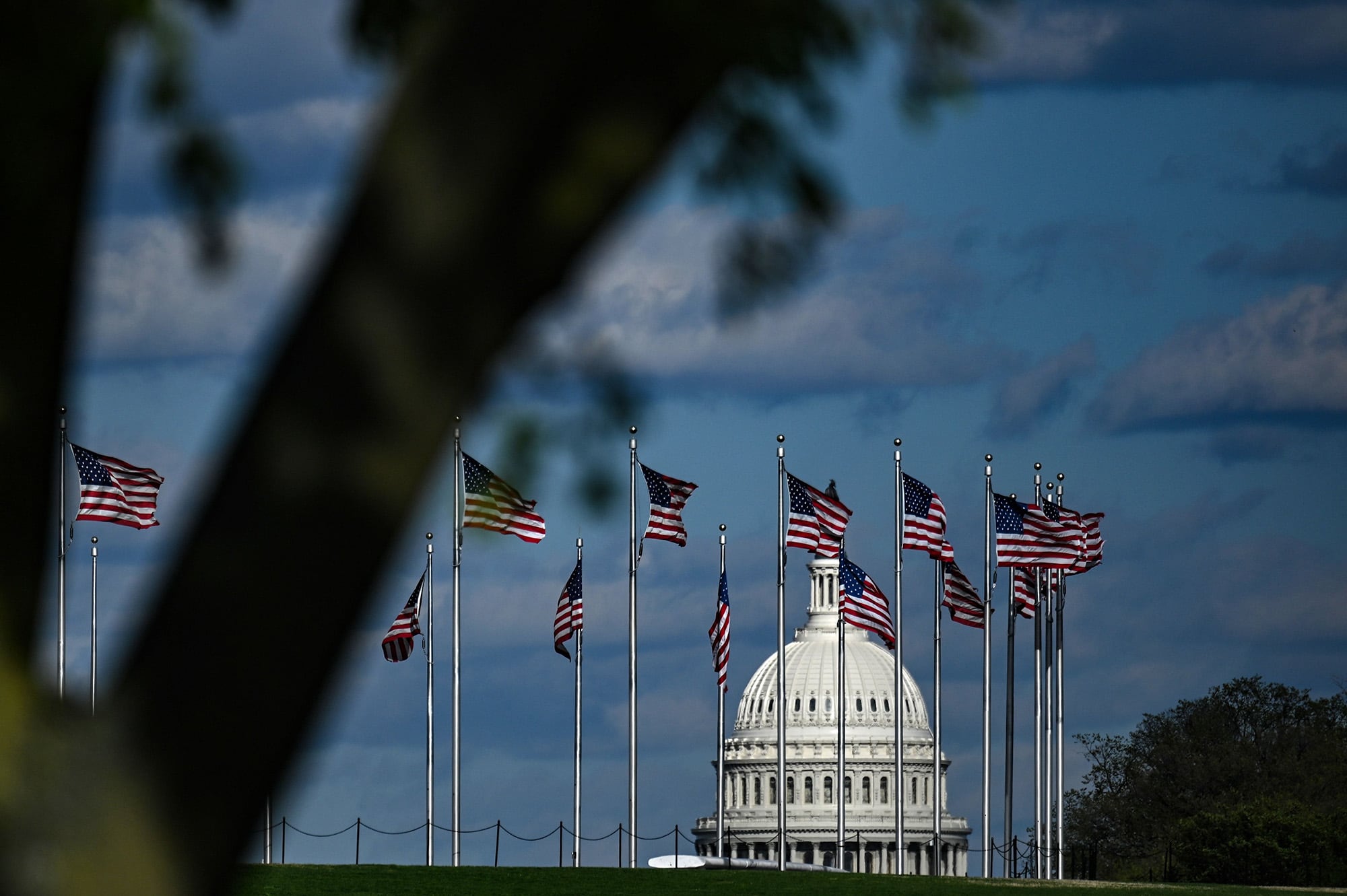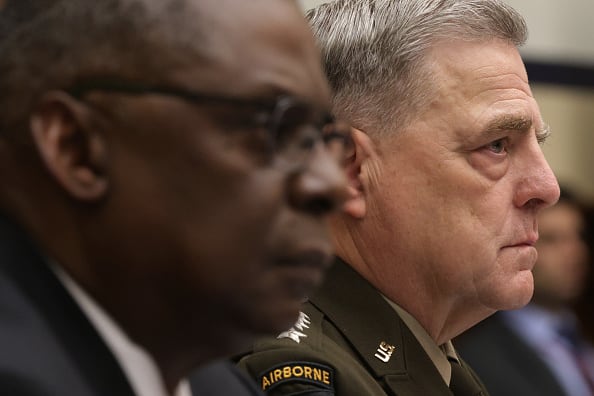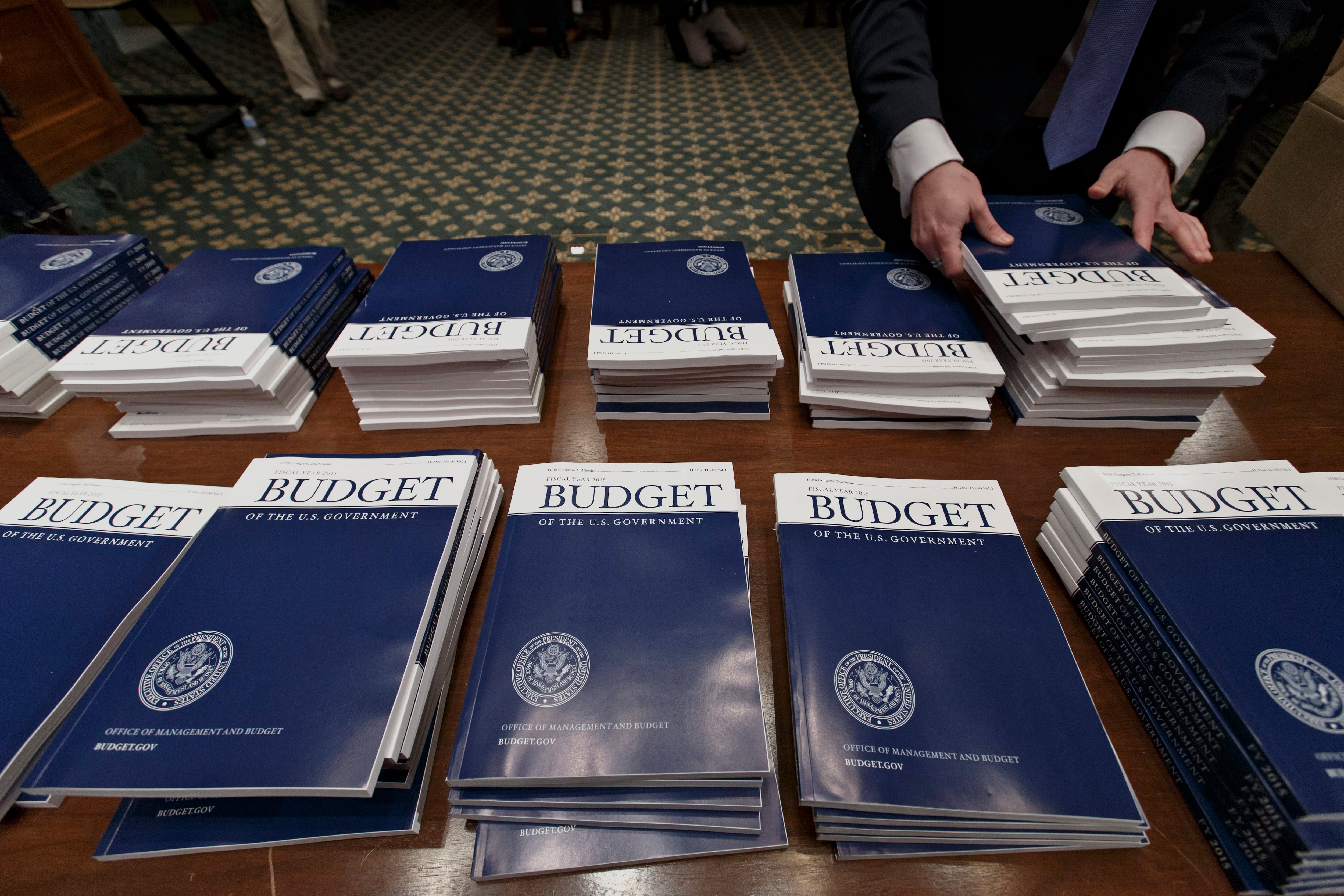Senate lawmakers will consider increasing White House military spending plans for next year by $25 billion as part of their debate over the annual defense spending bill this week.
As closed-door work on the massive military policy measure began Wednesday morning, Republican members of the Senate Armed Services Committee were bullish on the prospects of dramatically boosting plans for a $716 billion base budget for the Department of Defense in the measure.
One amendment under consideration would add the $25 billion in additional funding to cover the individual services’ unfunded priorities, a wish list of equipment purchases and program additions which were cut out of the White House’s budget request.
RELATED

“I feel very confident about getting support, from Democrats too,” said Sen. Jim Inhofe, R-Okla., ranking member of the committee and a vocal critic of President Joe Biden’s defense spending plan for next year.
For the Army, the unfunded priorities include $1.1 billion for tactical training, soldier quality of life and strategic power projection capabilities, and another $1.9 billion for aviation platforms, wheeled and tracked combat vehicles and cyber security upgrades.
The Navy list includes nearly $1.7 billion for a second DDG and $280 million for additional flying hours for Navy pilots. Air Force officials want to spend $1.4 billion on 12 additional F-15EXs and $825 million for weapon system sustainment efforts. Marine Corps leaders asked for more than $150 million additional Naval Strike Missiles and Tactical Tomahawk missiles.
Democrats on the panel have been largely quiet on the prospect of increasing defense spending in the budget plan. Last week, Sen. Kirsten Gillibrand, D-N.Y. and a member of the armed services committee, said she was unsure if the president’s $716 billion spending plan would remain unchanged as work on the funding bills moved ahead.
“Congress typically spends what they want to spend,” she said. “I don’t think [total defense spending] will be lower than that, because I don’t think the Senate will put forward a lower number.”
Boosting the budget plan above $740 billion next year may bring Senate Republican support for the defense bill when it comes to a full chamber vote.
The $716 billion budget proposal represents a 1.4 percent increase over fiscal 2021 spending levels, a figure that Republicans say does not keep up with inflation costs. Numerous GOP members have publicly attacked the plan, saying it failed to keep pace with the threats presented by China and terrorist groups around the globe.
“We are not prioritizing the military at all with this budget,” Sen. Dan Sullivan, R-Alaska and another committee member, said during a Republican press conference on defense spending last month. “We’re gonna continue to press to make this much stronger budget for our military.”
But the move brings with it the danger of losing support from progressive lawmakers — especially in the House — who have noted that defense spending rose sharply in recent years while other domestic agencies saw significant funding cuts.
Earlier this month, several Democrats on the House Appropriations Committee gave reluctant support to the president’s defense spending plan, calling it more geared towards helping defense contractors than addressing threats to America such as climate change and future pandemics.
None of the Republicans on the appropriations committee backed the measure.
RELATED

Last month, House Armed Services Committee Chairman Adam Smith, D-Wash., said that he believed the $716 defense funding target was sufficient for Defense Department needs, and opposed the idea of adding more to meet the unfunded requirements list.
“No matter how large the budget, there’s always this list of unfunded ‘requirements,’” he said during a committee hearing on the budget. “And it strikes me as simply a forcing mechanism to, no matter what, force money into the system.”
His committee is set to begin public work on the annual authorization bill next week, but a full committee vote on the legislation won’t happen until Sept. 1.
Meanwhile, the Senate Armed Services Committee is expected to be in closed-door debate for all of Wednesday and part of Thursday to discuss the funding top line and other defense policy issues.
Reporter Joe Gould contributed to this story.
Leo covers Congress, Veterans Affairs and the White House for Military Times. He has covered Washington, D.C. since 2004, focusing on military personnel and veterans policies. His work has earned numerous honors, including a 2009 Polk award, a 2010 National Headliner Award, the IAVA Leadership in Journalism award and the VFW News Media award.





